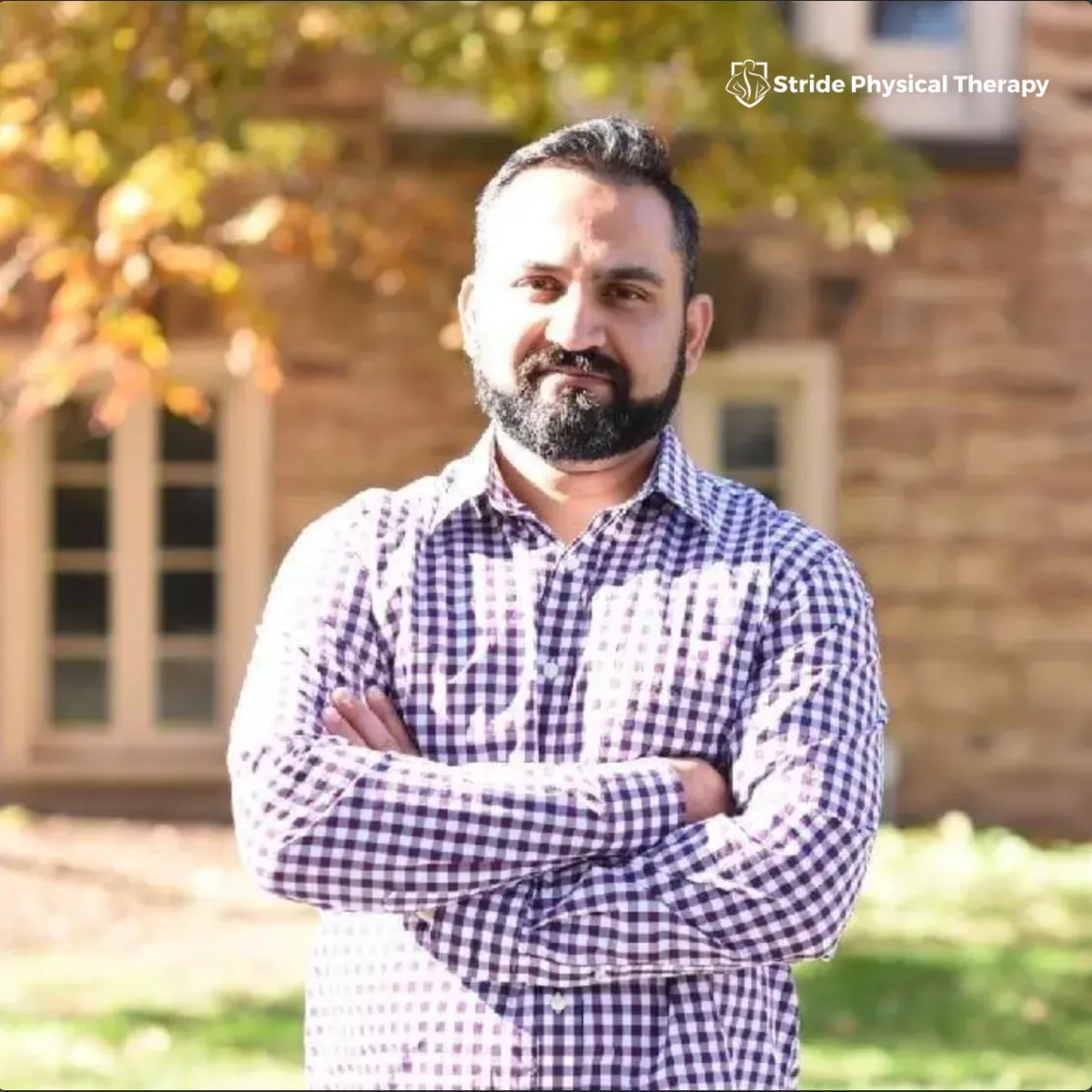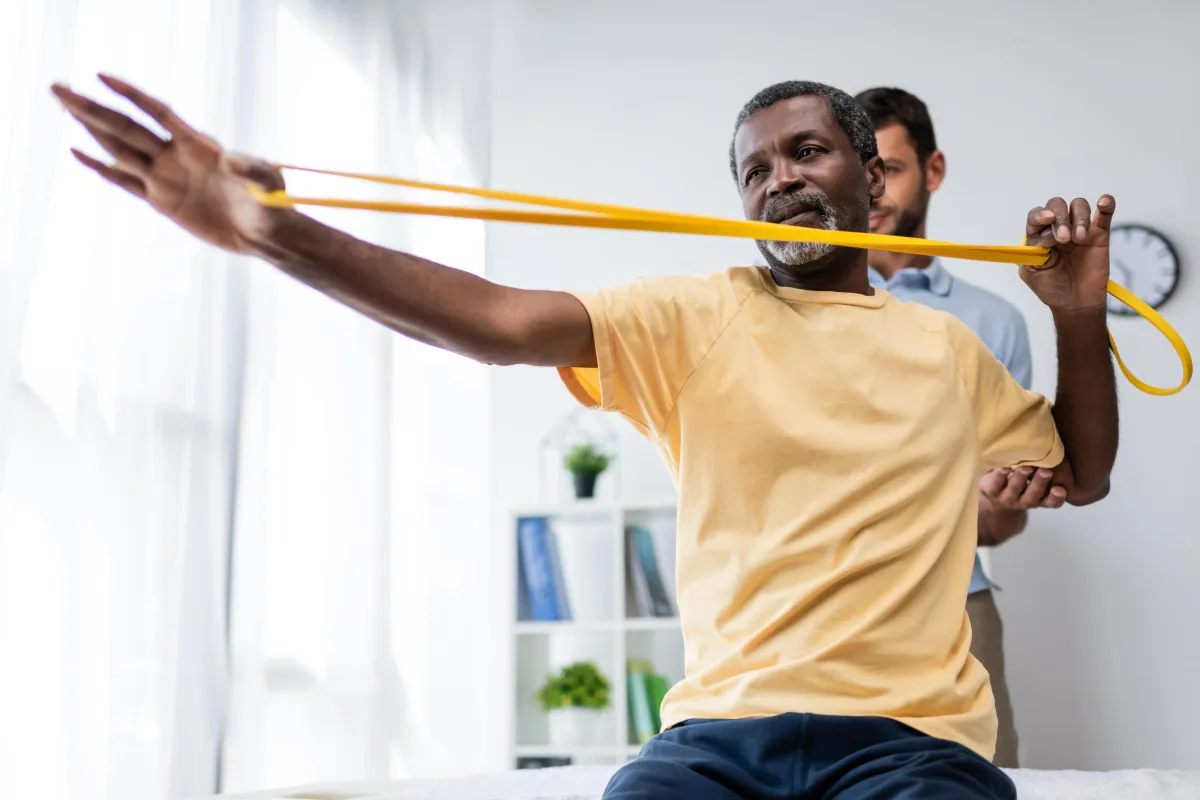The plantar fascia is a slim, strong band that runs beneath your foot, forming the arch. It stretches from your heel to your toes.
Plantar fasciitis is when the plantar fascia, a band in your foot, gets inflamed from too much stretching or usage, leading to heel and foot pain. This can affect one or both feet, often happens from standing a lot, and is a typical foot problem for active men aged 40 to 70.
Causes of Plantar Fasciitis
Plantar fasciitis is when the plantar fascia ligament gets strained or irritated. Constant strain might cause small tears in the ligament, causing pain and swelling that makes walking hard.
Strains can result from:
1. Having a very high or low arch in your foot.
2. Being overweight or quickly gaining weight.
3. A stiff Achilles tendon, the link between your calf and heel.
4. Beginning a fresh activity or boosting its difficulty.
5. Poor footwear choices like too soft soles, ill-fitting shoes, or inadequate arch support.

Quick Links
FAQs
Symptoms of Plantar Fasciitis
Plantar fasciitis typically causes heel and foot pain and stiffness. This pain is usually worse:
1. When you first get up in the morning.
2. If you walk after long periods of sitting or standing.
3. When going up stairs.
4. Following exercise.
Diagnosis
Your doctor can diagnose plantar fasciitis by discussing your medical history and checking your foot for pain, firmness, or redness on the bottom. They might observe how you stand and walk and look into other factors like high arches.
Your doctor may request foot X-rays to check for a stress fracture (a tiny crack in the bone), or conditions like a heel spur, an excess buildup of calcium on the heel bone.
Treatment for Plantar Fasciitis
Treatment includes simple steps to ease the condition. These steps are: 1. Rest: Begin with rest, which helps lessen pain and protects the ligament from more harm.
2. Ice: Apply ice by rolling your foot over it. Do this for 20 minutes, 3-4 times daily, to decrease swelling.
3. Medications: NSAIDs can be used to ease pain and lessen inflammation.
4. Exercise: Try calf and plantar fascia stretches to alleviate pain.
5. Steroid Injection: An injection may be given in the plantar fascia to lessen pain and swelling.
6. Shoes & Orthotics: Supportive footwear and orthotics can make walking or standing more comfortable.
7. Night Splints: Your doctor may advise wearing night splints to stretch the plantar fascia during sleep.
8. Physical Therapy: Learn stretching exercises, massage techniques, and ice applications.
9. ESWT: Physical therapists might use shockwave impulses to help heal the plantar fascia.
Surgery for Plantar Fasciitis
Surgery is an option if after a year, other treatments haven’t helped. The type of surgery you'll get depends on your specific case.
Gastrocnemius recession surgery lengthens tight calf muscles to reduce strain on the plantar fascia. Your surgeon will make your calf muscle longer, improving ankle movement. It's done with an open cut or through a tiny cut using an endoscope, a camera-equipped tool.
Plantar Fascia Release: Should you retain good ankle movement but still suffer from heel pain, we suggest a partial release surgery. In this, your surgeon will delicately slice a portion of your plantar fascia ligament to lessen the strain. While this operation can be done using an endoscope, the open incision method is simpler and carries a reduced likelihood of harming nerves.
Risks and Complications
Surgery for plantar fasciitis is usually safe, but like all surgeries, risks exist. Possible issues include:
1. Infection.
2. Nerve damage.
3. Persistent pain.
MEET YOUR RECOVERY TEAM

Kanwal Bhardwaj
PT, M.Sc.PT, CIMT, CMNT
Meet Kanwal Bhardwaj, PT, M.Sc.PT, CIMT, CMNT, the driving force behind Stride Physical Therapy in Freehold, NJ. With over 20 years of dedicated experience in the field, Kanwal brings a wealth of expertise and a passion for holistic healing to his practice. Kanwal's journey began with a Master of Science in Orthopedic Physical Therapy from Quinnipiac University in 2004. Over the years, he honed his skills and gained invaluable insights during 18 years of service in outpatient physical therapy offices. In 2014, fueled by a desire to deepen his understanding of patient care, he pursued a manual therapy certification (CIMT). This transformative experience allowed him to adopt a whole-body perspective, focusing on treating the root cause rather than just the symptoms...
At Stride Physical Therapy, we're dedicated to transforming lives. With a focus on the root cause of your condition, we're here to help you regain mobility and embrace an active lifestyle. What sets us apart? Our genuine passion for what we do. Let's stride towards a brighter tomorrow together.
Elevate Your Health with Our All-Inclusive Wellness Services!
Take one step closer to a pain-free life with Stride Physical Therapy! Discover medication and surgery-free solutions with our sessions.
Health Blog

Preparing for Surgery? Try Pre-hab to Speed up Your Recovery Process.
Getting ready for surgery? Understand that rehabilitation after surgery is key for a speedy recovery. It returns your movement and helps you stand on your feet again. Interestingly, rehabilitation before surgery, known as pre-hab, can also make your post-surgery recovery faster and even enhance the outcome of your surgery. Pre-hab means working with a physical therapist to prepare your body for surgery. Post-surgery, rehab takes over the healing process.
For a swift return to your daily life after surgery, consider Stript Physical Therapy in Freehold, NJ. Our dedicated team designs a personalized treatment plan to expedite your recovery and prepare you for your upcoming surgery.
Understanding Pre-hab vs. Rehab
Pre-hab: Participating in a pre-hab program with a physical therapist helps you get a head start on recovery and ensures a more successful surgery. Your therapist will prescribe exercises and therapeutic modalities to reduce inflammation and increase strength, giving your body an advantage as it heals from surgery. Even a few sessions can improve your overall health, so you have more strength to draw on post-surgery. Pre-hab prevents extreme weakness after surgery by building up your strength in advance.
Rehab: While pre-hab prepares your body for surgery, rehab focuses on strengthening your body afterward. Post-surgery pain and discomfort are natural, and certain motions may be challenging. However, it’s crucial to maintain movement to regain your range of motion and ensure a full recovery. Rehab helps you move safely, prevent reinjury, fight inflammation, and keep painful adhesions from forming. It also builds strength to help you quickly return to your routine.
What Results Can You Expect from Pre-hab?
Pre-hab dramatically helps people about to have surgery. Research from the Arthritis Foundation found that patients doing pre-hab recovered better after surgery and could leave the hospital sooner. Knee replacement patients who did pre-hab could walk and climb stairs well enough to be discharged from the hospital faster than those who skipped pre-hab.
Get a Jump Start on Your Recovery with Stride Physical Therapy
The health benefits of pre-hab are undeniable. If your surgery date is approaching, call Stride Physical Therapy in Freehold, NJ today to take advantage of our strengthening pre-hab services. Our team of dedicated movement experts will help you improve your strength before surgery, ensuring a smoother post-operative outcome and a faster recovery. Don’t face this journey alone—contact Stride Physical Therapy today to get the supportive, knowledgeable care you deserve.


